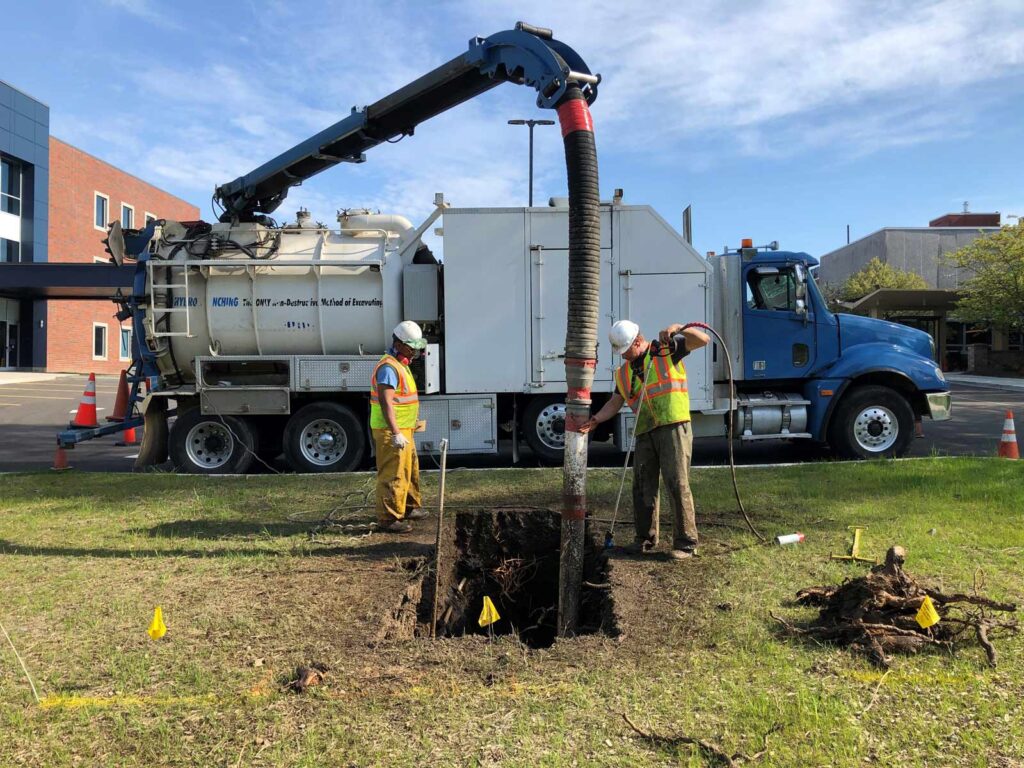Hydro-excavation, often referred to as hydrovac or vacuum excavation, plays a crucial role in emergency response scenarios where precision, speed, and safety are paramount. This innovative technique combines high-pressure water and a vacuum system to safely excavate soil, debris, or other materials from the ground. In emergency situations, such as pipeline ruptures, utility line damages, or natural disasters, hydro-excavation offers a unique set of advantages that traditional excavation methods simply cannot match. One of the primary advantages of hydro-excavation in emergency response scenarios is its non-destructive nature. When dealing with critical infrastructure, such as gas lines or fiber optic cables, the risk of accidental damage is significantly reduced. The high-pressure water stream effectively breaks up the soil, while the vacuum system simultaneously removes the debris, leaving the underground utilities intact. This precision is especially crucial in situations where time is of the essence, and any additional damage could exacerbate the emergency at hand.

Speed is another key factor that sets hydro-excavation apart in emergency response. Traditional excavation methods often involve heavy machinery, manual labor, and extended timelines. In contrast, hydro-excavation allows for rapid excavation, minimizing downtime and enabling quicker access to the affected area. This efficiency is particularly vital in emergency scenarios where prompt intervention can mitigate further damage and enhance overall response effectiveness. The safety aspect of hydro-excavation is a critical consideration in emergency response. The remotely operated equipment ensures that workers can maintain a safe distance from potentially hazardous sites. Moreover, the process eliminates the need for manual digging, reducing the risk of injuries associated with traditional excavation methods. In emergency situations where the potential for environmental hazards or unstable ground conditions is high, the enhanced safety provided by hydro-excavation becomes invaluable.
The versatility of hydro-excavation equipment further enhances its effectiveness in emergency response. The equipment can access confined spaces, navigate challenging terrains, and adapt to various soil types. This adaptability is especially advantageous when responding to emergencies in urban environments, where space constraints and complex underground infrastructure demand a specialized approach. Environmental considerations are also a significant factor in emergency response scenarios, and hydro-excavation aligns well with eco-friendly practices. The use of water as a digging medium reduces the environmental impact compared to traditional excavation methods that may involve the use of chemicals or produce excessive dust. Additionally, the vacuum system efficiently collects and contains the excavated material, minimizing the risk of soil contamination. In conclusion, hydro-excavation emerges as a game-changer in emergency response scenarios, providing a balance between precision, speed, safety, and environmental responsibility. As technology continues to advance, the integration of hydro excavation contractor in Green Bay into emergency response protocols is likely to become even more widespread, ensuring that communities are better equipped to handle unforeseen challenges while minimizing the impact on critical infrastructure and the environment.